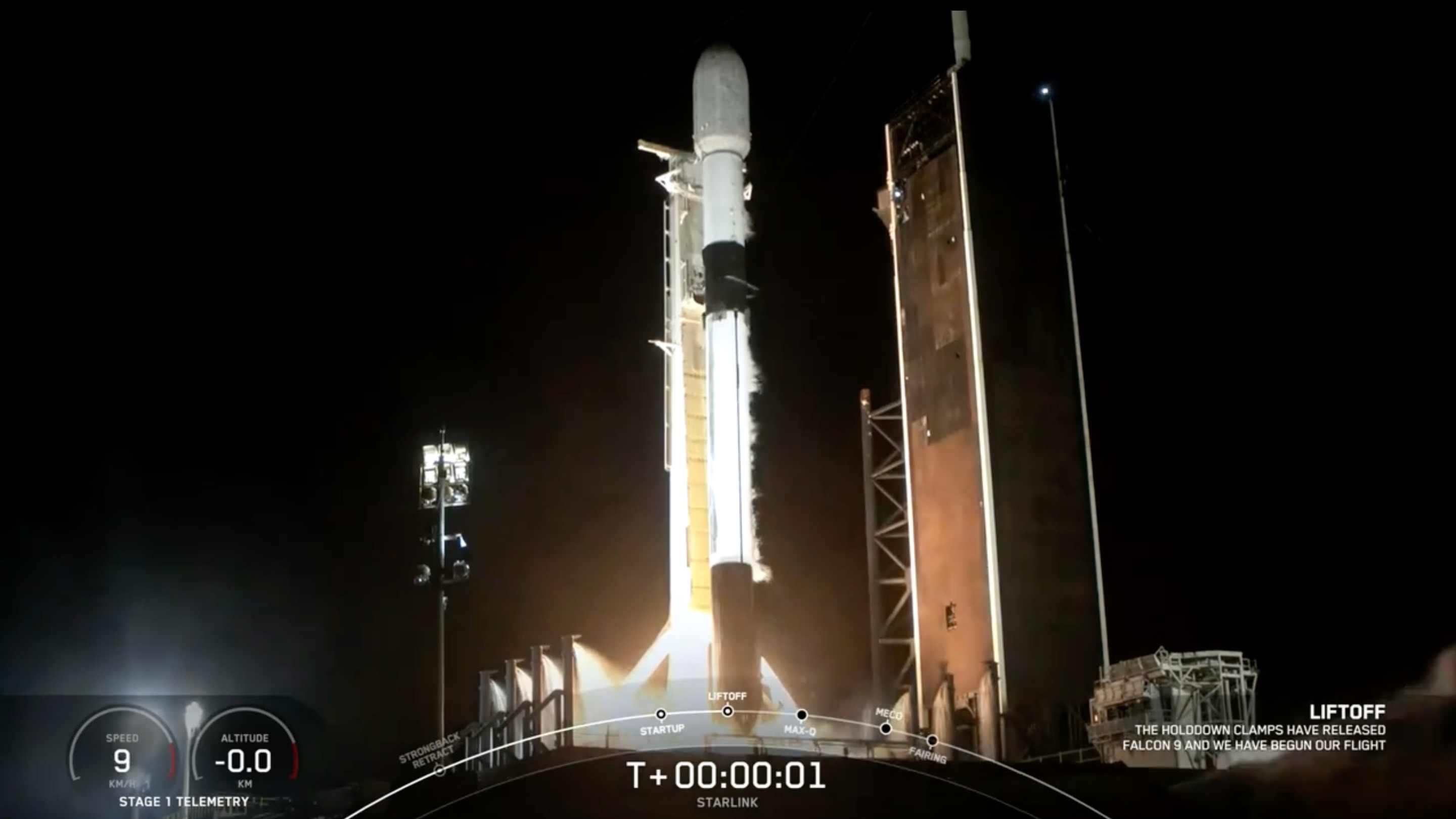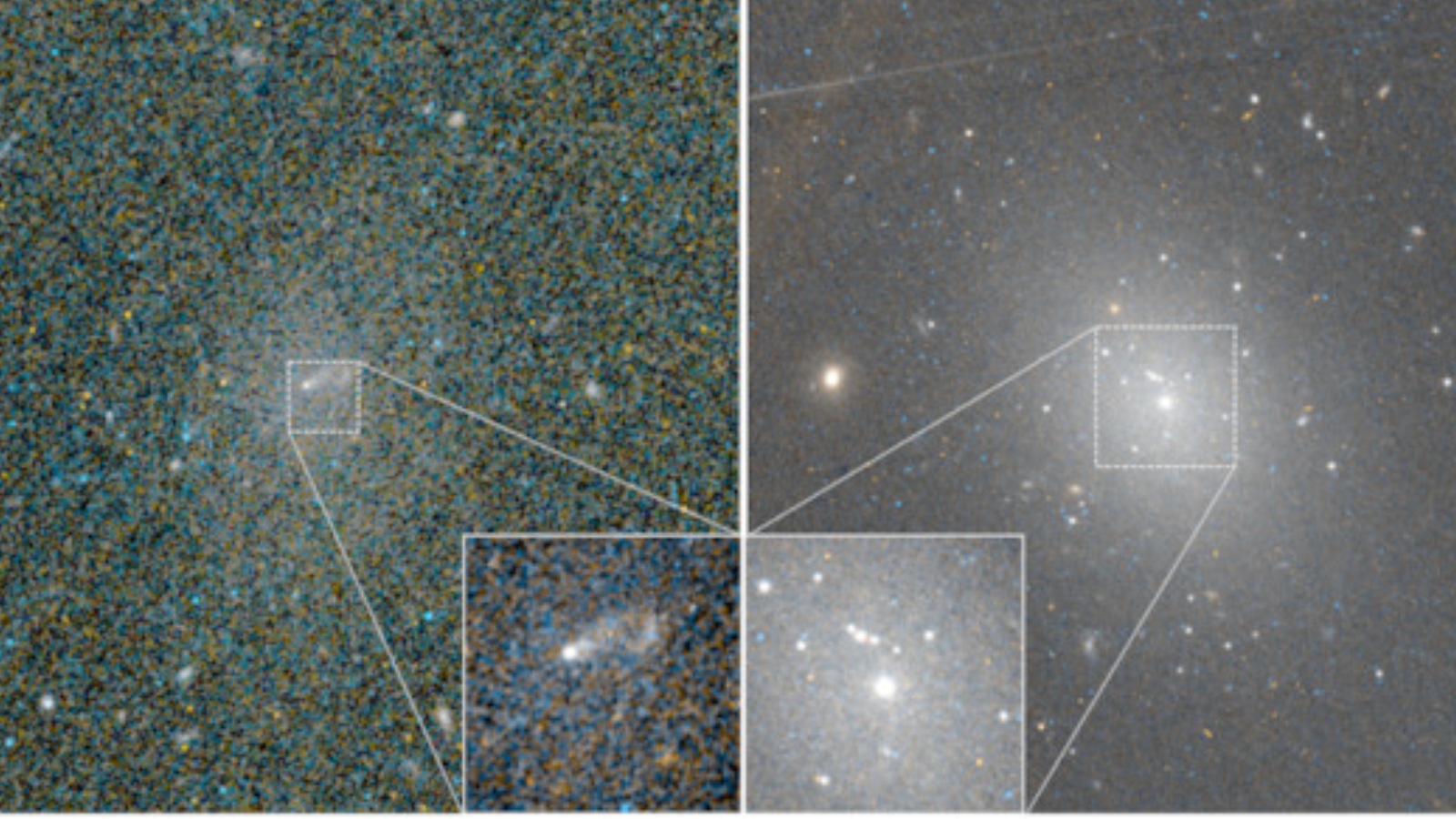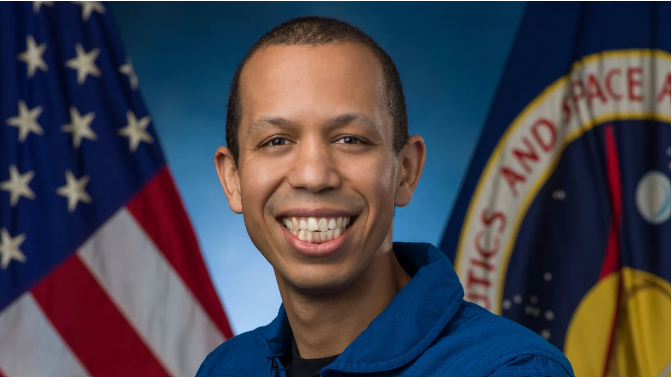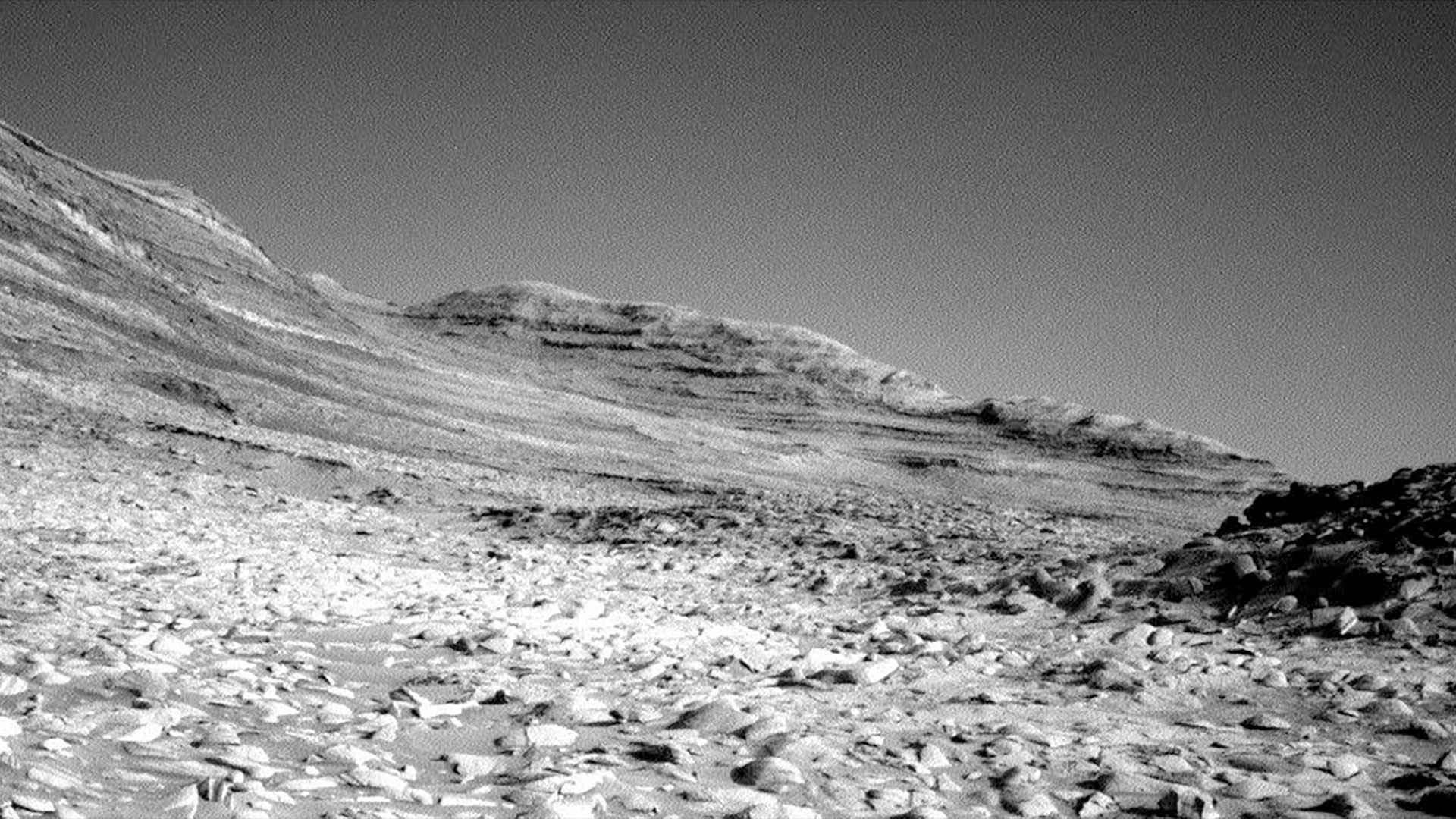
SpaceX just set a new launch record.
The company sent 21 of its Starlink internet satellites to orbit tonight (Sept. 3) atop a Falcon 9 rocket from NASA's Kennedy Space Center in Florida at 10:47 p.m. EDT (0247 GMT on Sept. 4).
It was SpaceX's 62nd orbital mission of 2023, setting a new record for most flights in a year, according to company founder and CEO Elon Musk. The old mark was set in 2022.
Related: Starlink satellite train: How to see and track it in the night sky
Great work by the @SpaceX team successfully launching 61 Falcon rocket missions this year! If tomorrow’s mission goes well, we will exceed last year’s flight count. SpaceX has delivered ~80% of all Earth payload mass to orbit in 2023. China is ~10% & rest of world other ~10%.September 2, 2023
The Falcon 9's first stage came back to Earth as planned tonight. It touched down about 8.5 minutes after liftoff on the drone ship Just Read the Instructions, which was stationed in the Atlantic Ocean.
It was the 10th launch and landing for this particular booster, according to a SpaceX mission description.
The Falcon 9's upper stage, meanwhile, kept on flying. It's scheduled to deploy the 21 Starlink satellites into low Earth orbit (LEO) about 65 minutes after liftoff.
Get the Space.com Newsletter
Breaking space news, the latest updates on rocket launches, skywatching events and more!
The launch was part of a big day for SpaceX. The company is also bringing home the four astronauts of its Crew-6 mission, who had been at the International Space Station (ISS) since March.
Crew-6's Crew Dragon capsule, named Endeavour, departed the ISS a little after 7 a.m. EDT (1100 GMT) today. It will splash down in the ocean off the Florida coast at around 12:17 a.m. EDT (0417 GMT). You can watch that milestone here at Space.com when the time comes.
Join our Space Forums to keep talking space on the latest missions, night sky and more! And if you have a news tip, correction or comment, let us know at: community@space.com.

Michael Wall is a Senior Space Writer with Space.com and joined the team in 2010. He primarily covers exoplanets, spaceflight and military space, but has been known to dabble in the space art beat. His book about the search for alien life, "Out There," was published on Nov. 13, 2018. Before becoming a science writer, Michael worked as a herpetologist and wildlife biologist. He has a Ph.D. in evolutionary biology from the University of Sydney, Australia, a bachelor's degree from the University of Arizona, and a graduate certificate in science writing from the University of California, Santa Cruz. To find out what his latest project is, you can follow Michael on Twitter.









